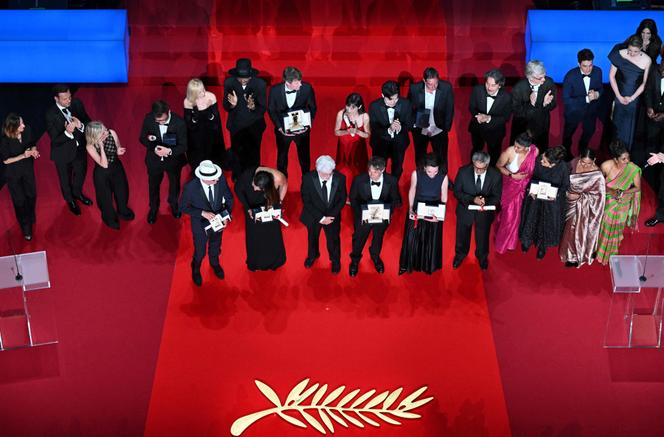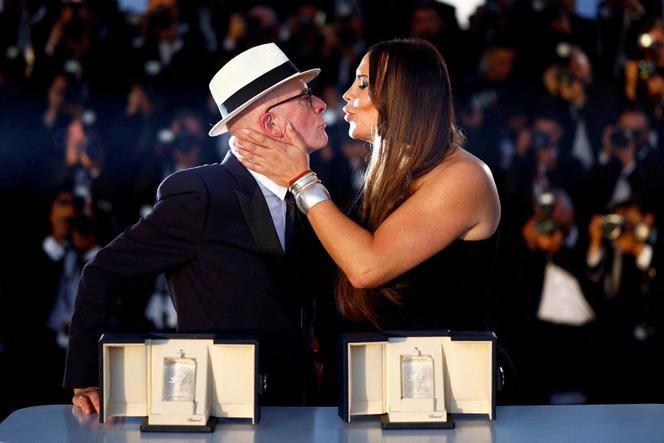


After 10 days of screenings and 22 films watched and discussed, the jury of the 77th edition of the Cannes Film Festival, presided over by American actress and director Greta Gerwig, revealed its list of winners on Saturday, May 25, during an elegantly conducted closing ceremony that went off without a hitch or grating speeches. Amid the usual hum of acknowledgments and applause, three beautiful moments of emotion will be remembered.
The first was the appearance on stage of Iranian filmmaker Mohammad Rasoulof, who came to receive the Special Jury Prize for his film The Seed of the Sacred Fig, which probes the generational divide within a family whose father has become a regime watchdog.
The presence of the director, who recently left Iran clandestinely on foot over the mountains to escape a prison sentence for "collusion against national security," was unexpected. It was greeted by a standing ovation before the filmmaker took the floor to, among other things, send a thought to all the absent members of his team, "my cinematographer, my sound engineer, and many technicians who are under pressure from the secret services of [the Islamic Republic]."
Another highlight of the ceremony was the tears mingled with the fighting cry of transgender Spanish actress Karla Sofia Gascon, who received the Best Actress Award, along with Selena Gomez, Zoe Saldana, and Adriana Paz, her partners in Emilia Perez, Jacques Audiard's musical comedy set against the backdrop of Mexican cartels. Audiard also walked away with the Jury Prize. The Best Actor award, meanwhile, went to American actor Jesse Plemons for the anthology film Kinds of Kindness, by Greek filmmaker Yorgos Lanthimos.

Finally, to move us to the point of tenderness, Francis Ford Coppola (in official competition for Megalopolis, which went home empty-handed) and George Lucas, who was celebrated with an honorary Palme d'Or, were reunited on stage. Holding hands and saluting their six-decade-long friendship, these two veterans and masters of American cinema paid tribute to each other.
To succeed Justine Triet's Anatomie d’une chute (Anatomy of a Fall) – a tough task – Gerwig's jury did not fail in awarding the Palme d'Or to the best film that could lay claim to it this year: Anora by Sean Baker, a trivial fairy tale about a prostitute and the son of a Russian oligarch that turns into a fast-paced action comedy in the streets of New York. Similarly well-deserved is the Grand Prix awarded to All We Imagine as Light by Indian director Payal Kapadia, who, in his second feature film, shows three women of different ages and backgrounds grappling with traditions, family burdens, and social determinism.
You have 51.74% of this article left to read. The rest is for subscribers only.
